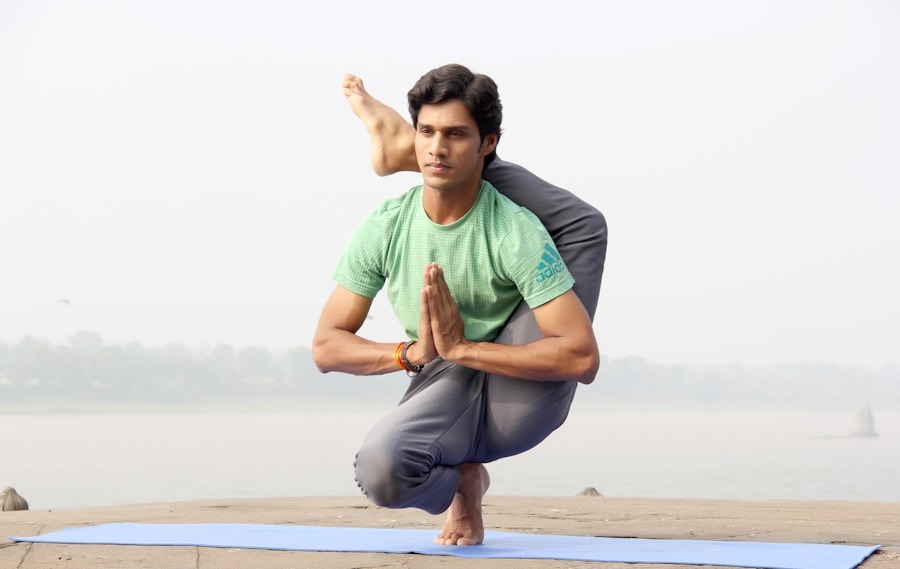Yoga, an ancient practice with roots in Indian philosophy, has transcended its spiritual origins to become a global phenomenon embraced by millions. While many people initially approach yoga for its physical benefits, such as increased flexibility and strength, the practice offers profound opportunities for personality growth and self-discovery.
This multifaceted approach encourages practitioners to explore their inner landscapes, leading to significant transformations in personality traits and overall well-being. The journey of personal growth through yoga is often marked by increased self-awareness, emotional intelligence, and resilience. As individuals engage in regular practice, they begin to notice shifts in their thoughts, feelings, and behaviors.
This transformation is not merely superficial; it penetrates the core of one’s identity, allowing for a more authentic expression of self. The integration of yoga into daily life can serve as a catalyst for profound changes, enabling individuals to navigate the complexities of modern existence with greater ease and confidence.
Key Takeaways
- Yoga is a practice that can lead to personal growth and development of one’s personality.
- Practicing yoga can help individuals become more self-aware and in tune with their thoughts and emotions.
- Yoga can aid in the development of emotional intelligence by promoting mindfulness and self-reflection.
- Engaging in yoga can have a positive impact on stress management and resilience, helping individuals cope with life’s challenges.
- Regular yoga practice can boost confidence and self-esteem, leading to a more positive self-image and outlook on life.
The Connection Between Yoga and Self-Awareness
Self-awareness is a cornerstone of personal development, and yoga serves as a powerful tool for cultivating this essential quality. Through the practice of mindfulness inherent in yoga, individuals learn to observe their thoughts and emotions without judgment. This non-reactive observation fosters a deeper understanding of one’s habitual patterns, enabling practitioners to identify triggers that influence their behavior.
For instance, during a challenging pose, one may notice feelings of frustration or impatience arising. By acknowledging these emotions without attachment, individuals can begin to unravel the underlying beliefs that contribute to such reactions. Moreover, the meditative aspects of yoga encourage introspection and reflection.
As practitioners settle into stillness, they create space for self-inquiry, allowing them to explore questions about their values, desires, and fears. This process can lead to significant insights about one’s motivations and aspirations. For example, someone who practices yoga regularly may discover that their pursuit of success is driven by external validation rather than intrinsic fulfillment.
Such realizations can prompt a reevaluation of life choices, steering individuals toward paths that resonate more authentically with their true selves.
How Yoga Helps in Developing Emotional Intelligence

Emotional intelligence (EI) refers to the ability to recognize, understand, and manage one’s own emotions while also empathizing with others. Yoga plays a crucial role in enhancing EI by fostering emotional regulation and empathy through its practices. The emphasis on breath control in yoga helps individuals develop a greater awareness of their emotional states.
By learning to regulate their breath during moments of stress or anxiety, practitioners can cultivate a sense of calm that allows for clearer thinking and more thoughtful responses to emotional challenges. Additionally, the community aspect of yoga—often experienced in group classes—provides opportunities for social interaction that can enhance empathy and interpersonal skills. Engaging with fellow practitioners fosters a sense of connection and shared experience, which can deepen one’s understanding of others’ emotions.
For instance, witnessing someone struggle with a pose may evoke feelings of compassion and support, reinforcing the importance of empathy in human relationships. As individuals become more attuned to their own emotions through yoga, they also develop a heightened sensitivity to the emotional landscapes of those around them.
The Impact of Yoga on Stress Management and Resilience
In today’s fast-paced world, stress has become an almost ubiquitous part of life. Yoga offers effective strategies for managing stress and building resilience against its adverse effects. The combination of physical movement, breathwork, and meditation creates a comprehensive approach to stress reduction.
This physical release is often accompanied by a mental shift; as practitioners focus on their breath and body alignment, they cultivate a sense of presence that diminishes anxiety. Furthermore, the resilience developed through regular yoga practice extends beyond the mat.
As individuals learn to navigate challenging poses and embrace discomfort during practice, they cultivate a mindset that views obstacles as opportunities for growth. This shift in perspective can translate into everyday life situations where stressors arise. For example, someone who regularly practices yoga may find themselves better equipped to handle workplace pressures or personal challenges with a calm demeanor and a problem-solving attitude.
The ability to remain grounded amidst chaos is a hallmark of resilience that yoga nurtures over time.
Yoga’s Influence on Confidence and Self-Esteem
Confidence and self-esteem are integral components of personal growth that can be significantly enhanced through yoga practice. The physical aspect of yoga encourages individuals to connect with their bodies in new ways, fostering a sense of empowerment as they achieve previously unattainable poses or improve their physical capabilities. This newfound strength can translate into increased self-confidence; as practitioners witness their progress on the mat, they often carry this sense of accomplishment into other areas of their lives.
Moreover, yoga promotes self-acceptance by encouraging individuals to embrace their unique journeys without comparison to others. In a society often fixated on external standards of success and beauty, yoga invites practitioners to honor their bodies as they are in each moment. This acceptance fosters a positive self-image and diminishes negative self-talk that can undermine confidence.
For instance, someone who struggles with body image may find solace in the practice of yoga, learning to appreciate their body’s capabilities rather than focusing on perceived flaws. Over time, this shift in perspective can lead to profound improvements in self-esteem.
Incorporating Yoga into Daily Life for Personal Growth

Morning Moments of Mindfulness
Starting the day with morning stretches or breathwork can set a positive tone for the day ahead. This simple practice can help individuals feel more centered and focused, preparing them for the challenges that lie ahead.
Creating a Sanctuary for Reflection
Creating a dedicated space for yoga at home can serve as a constant reminder to prioritize personal growth. This space can be as simple as a small corner with a mat and some calming decor, transforming into a sanctuary for reflection and practice. By setting aside time each week for longer sessions, individuals can delve deeper into their practice and engage with their community through classes or workshops.
Unlocking Potential for Growth and Transformation
The journey of personal growth through yoga is ongoing and deeply personal. By embracing the principles of yoga, such as mindfulness, self-acceptance, and resilience, individuals can unlock their potential for growth and transformation. This profound change can resonate within themselves and their interactions with the world around them, leading to a more fulfilling and meaningful life.
Yoga’s role in personality growth has been widely studied and praised for its ability to cultivate self-awareness and emotional intelligence. In a related article on understanding phenomenology and exploring human experience and truth, the connection between yoga practice and personal growth is further explored. Phenomenology delves into the subjective experiences of individuals and how they shape our understanding of the world around us. By incorporating yoga into our daily routine, we can tap into our inner selves and gain a deeper understanding of our thoughts, emotions, and behaviors. This article sheds light on how yoga can be a powerful tool for personal development and self-discovery. To read more about this fascinating topic, check out the article here.
FAQs
What is the role of yoga in personality growth?
Yoga can play a significant role in personality growth by promoting self-awareness, emotional regulation, and stress management. It can also help individuals develop qualities such as patience, compassion, and resilience.
How does yoga promote self-awareness?
Yoga encourages individuals to connect with their inner selves through practices such as meditation and mindfulness. This can lead to greater self-awareness and a deeper understanding of one’s thoughts, emotions, and behaviors.
Can yoga help with emotional regulation?
Yes, yoga can help individuals regulate their emotions by teaching them to stay present in the moment and respond to challenging situations with a sense of calm and clarity. Breathing techniques and relaxation exercises in yoga can also aid in emotional regulation.
How does yoga contribute to stress management?
Yoga promotes stress management by reducing the body’s physiological response to stress through relaxation and breathing techniques. Regular practice of yoga can also help individuals develop a more balanced and resilient mindset towards stressors.
What qualities can yoga help individuals develop?
Yoga can help individuals develop qualities such as patience, compassion, resilience, and self-discipline. The practice of yoga encourages individuals to cultivate a positive and balanced mindset, which can contribute to personal growth and development.
























+ There are no comments
Add yours